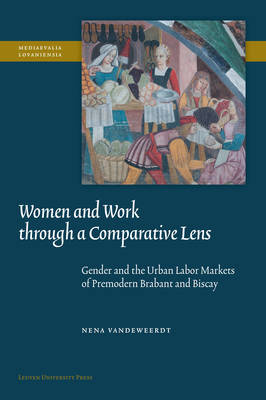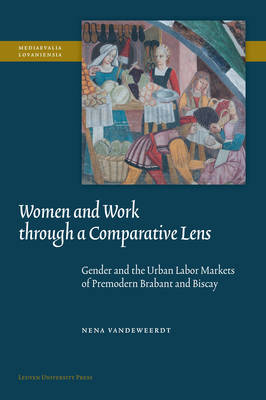
- Retrait en 2 heures
- Assortiment impressionnant
- Paiement sécurisé
- Toujours un magasin près de chez vous
- Retrait gratuit dans votre magasin Club
- 7.000.0000 titres dans notre catalogue
- Payer en toute sécurité
- Toujours un magasin près de chez vous
Women and Work through a Comparative Lens
Gender and the Urban Labor Markets of Premodern Brabant and Biscay
Nena VandeweerdtDescription
Urban Markets and Women's Labor: Navigating Institutional Boundaries in Premodern Europe
Women played a crucial role in medieval and early modern urban economies, yet their labor opportunities varied greatly depending on local institutions. This book compares the guild-structured labor markets of Antwerp and Mechelen in Brabant with Bilbao's informal economy in Biscay during the fifteenth and sixteenth centuries. By analyzing these distinct institutional contexts, it offers a multifaceted understanding of women's economic roles in premodern Europe. Drawing on a wide range of legislative and judicial sources, Vandeweerdt demonstrates how legal frameworks, socioeconomic structures, and individual strategies shaped women's activities in small-scale trade. Bridging institutional analysis and personal agency, Women and Work through a Comparative Lens sheds new light on the interplay between labor organization and everyday practices in premodern Europe.
Spécifications
Parties prenantes
- Auteur(s) :
- Editeur:
Contenu
- Nombre de pages :
- 250
- Langue:
- Anglais
- Collection :
- Tome:
- n° 51
Caractéristiques
- EAN:
- 9789462704947
- Date de parution :
- 15-12-25
- Format:
- Livre broché
- Format numérique:
- Trade paperback (VS)
- Dimensions :
- 156 mm x 234 mm
- Poids :
- 353 g

Seulement chez Librairie Club
Les avis
Nous publions uniquement les avis qui respectent les conditions requises. Consultez nos conditions pour les avis.





